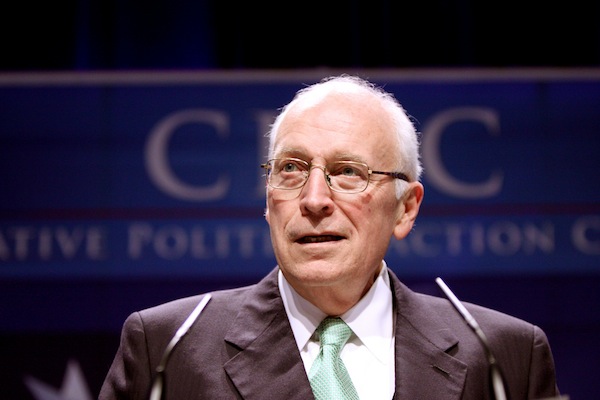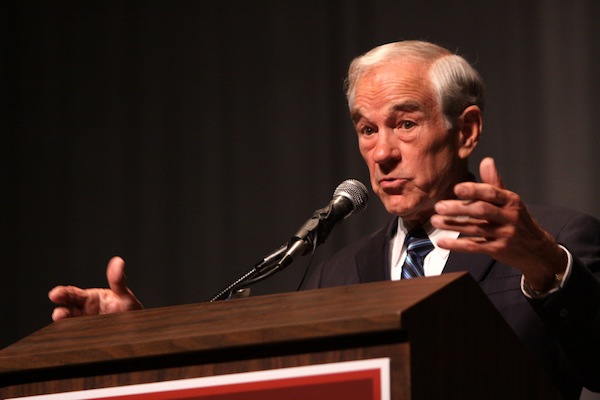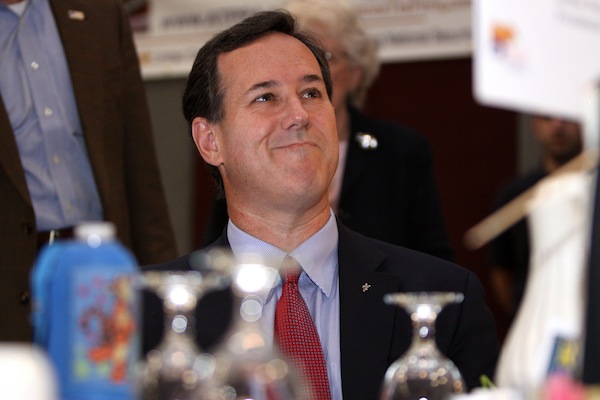

If you’ve spent much time scouring the Internet for news about the Republican presidential campaign, you’ve probably run across the work of Gage Skidmore.
Skidmore’s high-quality photographs of Mitt Romney, Paul Ryan, Ron Paul, Rick Santorum, and their compadres have appeared on hundreds if not thousands of sites, including those of The Atlantic, The World, Tech President, and MSNBC.
It’s not just the quality of his work that has made Skidmore so popular. It’s that he posts all of his photos to Flickr under a Creative Commons license, making them available free of charge as long as he’s credited. The license he chose even allows for commercial use, although he has sometimes been paid for the use of his photos. I discovered him when searching for free photos for my own blog, Media Nation, and have used his pictures on a number of occasions.

As it turns out, Skidmore is a 19-year-old student at Glendale Community College in Phoenix and a freelance graphic designer. A Ron Paul supporter, he began photographing politicians when he was living in Terre Haute, Indiana, attending events held by Rand Paul during his successful 2010 Senate run in Kentucky. Skidmore also showed up at stops on the presidential campaign trail in order to see Ron Paul and took photos of other prominent Republicans while he was there.
Skidmore doesn’t know how many times his photos have been used. Some version of a Gage Skidmore photo credit appears over 1 million times online, and looking up his name on Google Blogsearch yields about 40,000 results. That makes him the political equivalent of David Shankbone, the nom de photo of a Wall Street lawyer whose free celebrity photos have appeared in venues such as The New Yorker and Vanity Fair. Skidmore told me his Flickr account has been viewed nearly 1.2 million times.
(He also photographs comic-book conventions, and has attended Comic-Con the past six years.)
Skidmore is a paradigmatic example of the pro-am media ecosystem fostered by the Internet — a professional-level photographer without the means or the interest to become part of the traditional journalistic system, but who is nevertheless making a name for himself through the quality and quantity of his work.
I interviewed him by email last week, and have lightly edited our conversation.

I have only photographed a majority of the presidential candidates because Ron Paul was attending the conference that I was attending, whether it be CPAC [the Conservative Political Action Conference] or the Values Voters Summit. And it really helped to have photographed them before the presidential race began. For example, at CPAC in February 2011, Rick Santorum, Michele Bachmann, Rick Perry, and the like were still mostly unknown, and thus there was a lack of very many free-to-use photos.

My focus has never really been to cover the presidential race, but really only what I would enjoy seeing photos of, and enjoy attending events to take the photos, and what was convenient for me to attend.
Dan Kennedy is an assistant professor of journalism at Northeastern University and a panelist on Beat the Press, a weekly media program on WGBH-TV Boston. His blog, Media Nation, is online at www.dankennedy.net. His book on the New Haven Independent and other community news sites, The Wired City, will be published by the University of Massachusetts Press in 2013.
Photos (Cheney, Romney, Paul, Santorum) by Gage Skidmore used under a Creative Commons license.